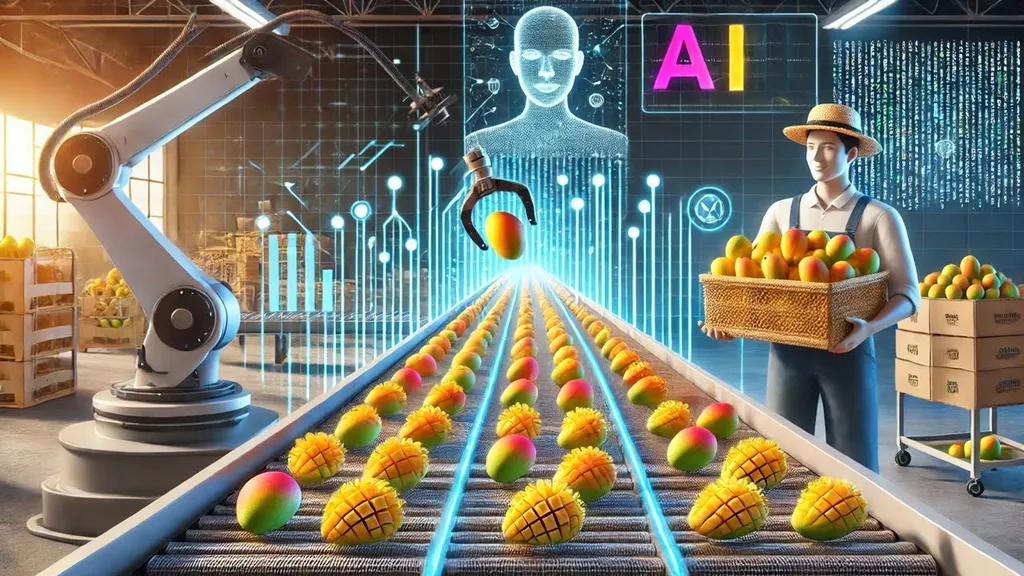In the sprawling orchards of the tropics, where mango trees flourish, a new technological breakthrough is set to revolutionize the way we classify and assess the quality of this beloved fruit. Researchers have developed an innovative approach that combines transfer learning and machine learning to accurately identify mango varieties and evaluate their quality, potentially streamlining supply chains and enhancing consumer satisfaction.
The study, led by Muhammad Usama Tanveer from the Institute of Information Technology at Khwaja Fareed University of Engineering and Information Technology, introduces a novel methodology that leverages the power of deep learning. By utilizing pre-trained Inception V3 models, the researchers fine-tune these models with a dataset of mango images to extract high-level features representative of different mango varieties. This process, known as transfer learning, allows for the efficient and accurate classification of mango types.
“We introduced a novel IncepForestNet approach for the feature engineering mechanism from mango fruit varieties and quality assessment,” Tanveer explained. “The spatial feature is extracted with IncepForestNet from images of mango fruit varieties and quality assessment data. After this process, Random Forest is used to find probabilistic features.”
The integration of various machine learning algorithms further enhances the classification accuracy and quality assessment attributes associated with mangoes. The researchers performed a comparative analysis of different machine learning algorithms to identify the most suitable technique for mango variety classification and quality assessment tasks. Their proposed model, Random Forest (RF), performed outstandingly with a 99% accuracy rate and a k-fold validation score on both mango classification and quality assessment.
This groundbreaking research, published in *Scientific Reports*, holds immense potential for the agriculture and food sector. By accurately classifying mango varieties and assessing crucial quality attributes, the proposed approach can facilitate streamlined supply chain operations. This could lead to reduced waste, improved inventory management, and ultimately, heightened consumer satisfaction.
The implications of this research extend beyond mangoes. The methodology developed by Tanveer and his team could be applied to other fruits and agricultural products, revolutionizing the way we manage and distribute food. As the agriculture sector continues to embrace technological advancements, this study paves the way for more efficient and effective practices.
“The proposed approach holds immense potential for streamlining supply chain operations and ensuring heightened consumer satisfaction within the Agriculture and Food sector,” Tanveer said.
In the ever-evolving landscape of agritech, this research stands as a testament to the power of machine learning and transfer learning in transforming traditional practices. As we look to the future, the integration of such technologies will undoubtedly shape the way we cultivate, classify, and consume our food.

